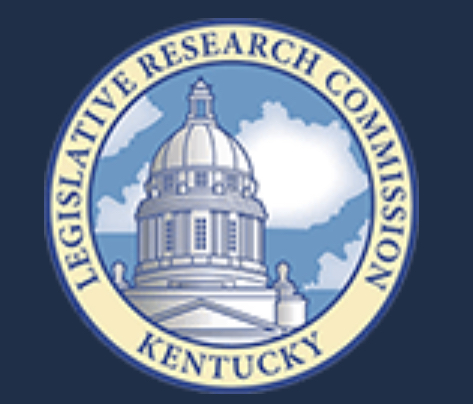
Public records once again take center stage in the Lexington Herald-Leader's recent reporting on Rep. Daniel Grossberg and controversial text messages he sent. The recipients of the texts, who shared the texts with the Herald-Leader, are women who are not employed by state government but who came into Grossberg's orbit through their work as lobbyists, as representatives of non-profits, and as women "involved in Kentucky’s political scene in Frankfort."
https://www.kentucky.com/news/politics-government/article291209990.html
Among the concerns raised by the allegations, and ensuing investigations into Grossberg's conduct, is the continuing saga of legislative secrecy.
Grossberg initially asserted that he is not culpable because "[a]ny claim[s] that private texts on my personal cell phone are work related [and] have no merit."
https://www.kentucky.com/news/politics-government/article290614314.html…
Whether public officials can evade accountability by communicating about public business on their personal devices or accounts is an issue currently in the Kentucky Supreme Court in Kentucky Department of Fish and Wildlife Resources Commission v Kentucky Open Government Coalition. In October, 2023, the Kentucky Court of Appeals ruled that they cannot and that such communications are public records subject to public inspection.
http://opinions.kycourts.net/COA/2022-CA-000170.PDF
https://kyopengov.org/blog/kentucky-open-government-coalitions-win-open…
"To hold otherwise," the Court of Appeals recognized, "would certainly defeat the underlying purpose of the Open Records Act as public officials could easily evade disclosure of public records by simply utilizing their personal cell phones."
Whether sexual harassment by a public official, here alleged, constitutes public business is a separate but directly related question. Certainly, substantiated or unsubstantiated, the public has a right to assess public agency response and the official's fitness for office.
Reports that one of the individuals with whom Grossberg communicated provided the Herald-Leader with a December 1, 2023, message in which he
encouraged her to use Snapchat, are equally concerning. In the message, Grossberg told her, "I like chats that can’t be used against me, lol."
https://www.kentucky.com/news/politics-government/article291200690.html
The use of automatic message deleting apps -- like Snapchat -- on public officials' devices used to communicate about public business is a pervasive problem, prompting some states to statutorily prohibit the apps and other states to seek judicial prohibition.
https://kyopengov.org/blog/michigan-state-house-voted-tuesday-prohibit-…
https://kyopengov.org/blog/seattle-mayor-jenny-durkan-whose-text-messag…
Meanwhile, one or more investigations into allegations leveled against Grossberg continue.
The Legislative Research Commission's Grossberg investigation may (or may not) be ongoing. Because LRC has, since 2021, been statutorily excluded from the open records law, it operates as a modern Star Chamber, meting out arbitrary and secret sanctions -- or none at all.
It is no coincidence that the case that precipitated the 2021 legislation exempting the General Assembly and its administrative arm, the LRC, from the open records law -- Becky Harilson v Shepherd and Lexington Herald-Leader (2019) -- involved access to legislative investigation records relating to allegations of sexual harassment against former lawmaker, John Arnold. That case was ultimately resolved by the Kentucky Supreme Court against LRC and in favor of the public right of access to the legislative investigative records.
http://opinions.kycourts.net/sc/2019-SC-000156-MR.pdf
If LRC is true to form, we may never know the specific allegations against Grossberg that LRC investigated, how fairly and thoroughly the allegations were investigated, and whether the allegations were substantiated or unsubstantiated.
This uncertainty dramatically illustrates the danger of the law excluding the General Assembly and LRC from the open records law -- and from public scrutiny -- enacted by the General Assembly in 2021.
https://apps.legislature.ky.gov/law/statutes/statute.aspx?id=51395
As it stands, what happens in the state legislature -- sexual harassment, bribery, destruction of records -- stays in the state legislature.
The same is not true of the Legislative Ethics Commission -- the agency conducting a concurrent investigation of allegations against Grossberg at the behest of House Democratic leadership. Access to its investigative records is governed by KRS 6.686. The records are "confidential [only] until a final determination is made by the commission" unless statutory conditions are met authorizing disclosure before final determination. If those condition are met, the Legislative Ethics Commission "may publicly confirm the existence of the inquiry and, in its discretion, make public any documents which were issued to either party." It's records will be accessible -- sooner or later.
https://apps.legislature.ky.gov/law/statutes/statute.aspx?id=55533
Whether Grossberg considered any of this in sending texts on his private cellphone, or in urging a recipient to use a message deleting app, is anyone's guess.
In the final analysis, this may be the least of the public's concerns about Grossberg, but it is consistent with many lawmakers' wrongheaded attitude, now codified in Kentucky law, that transparency and accountability are "meant for thee and not for me." It is yet another indictment of legislative branch secrecy.



